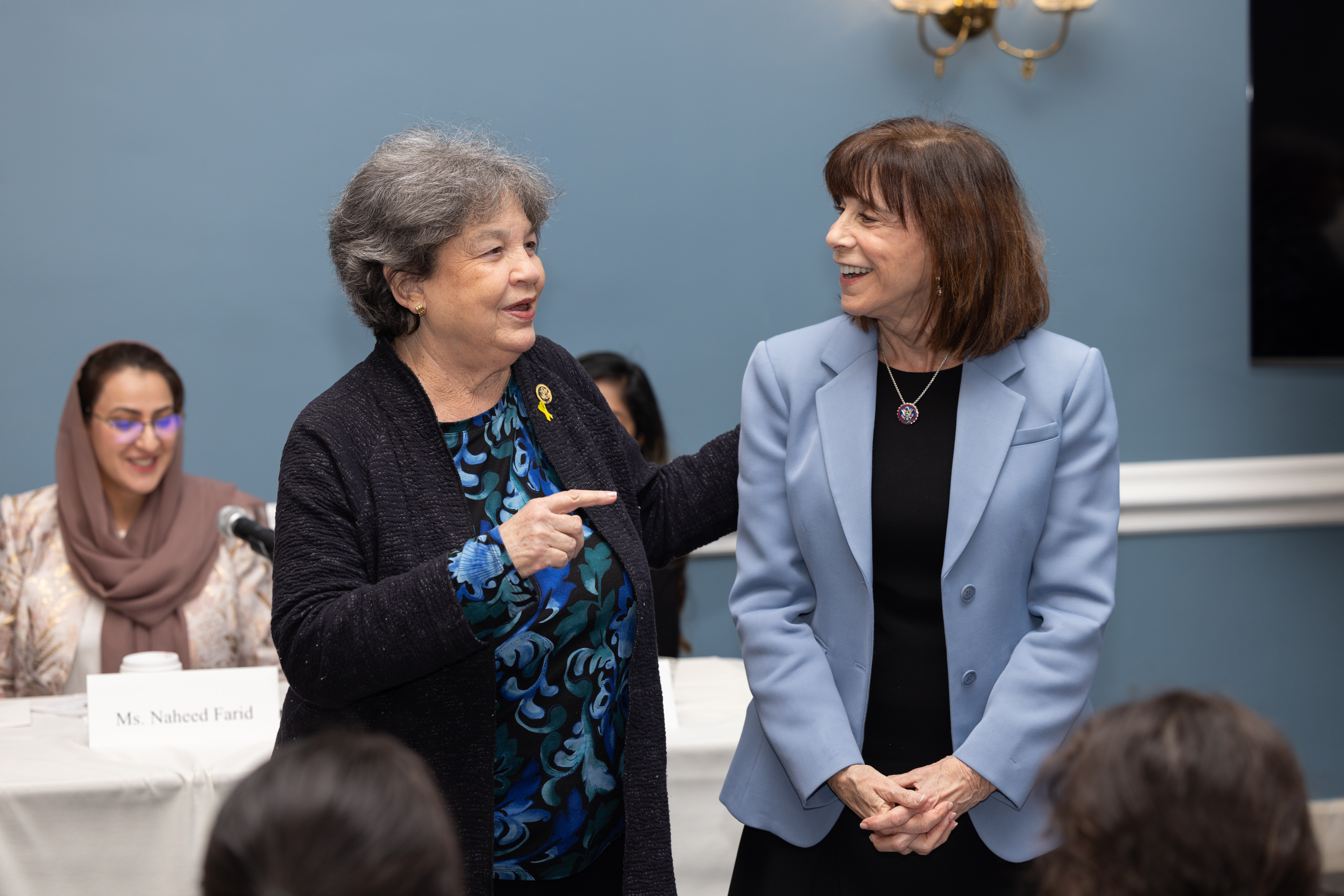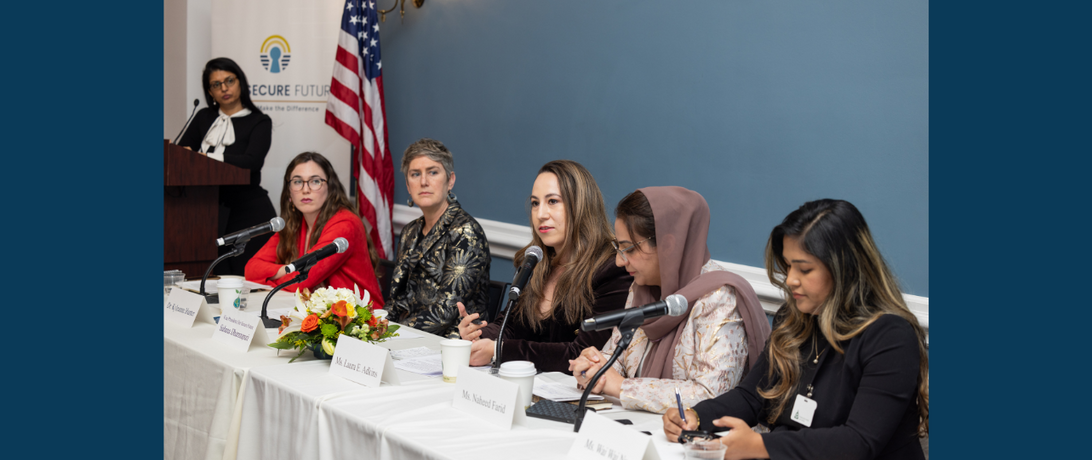
On February 15, 2024, Our Secure Future, in coordination with the bipartisan Congressional Women, Peace and Security Caucus, held an in-person, off-the-record briefing at the U.S. Capitol on “Women, Peace and Security (WPS) Policy Responses to Conflict-Related Sexual Violence (CRSV) Globally.”
On February 15, 2024, Our Secure Future, in coordination with the bipartisan Congressional Women, Peace and Security Caucus, held an in-person, off-the-record briefing at the U.S. Capitol on “Women, Peace and Security (WPS) Policy Responses to Conflict-Related Sexual Violence (CRSV) Globally.”
The event focused on shining a light on lessons learned in addressing CRSV globally and how U.S. policymakers can adhere to the WPS Act mandate to include women’s voices in peace and security decision-making. To learn more about the U.S. WPS Act of 2017, read OSF’s policy brief on the legislation.
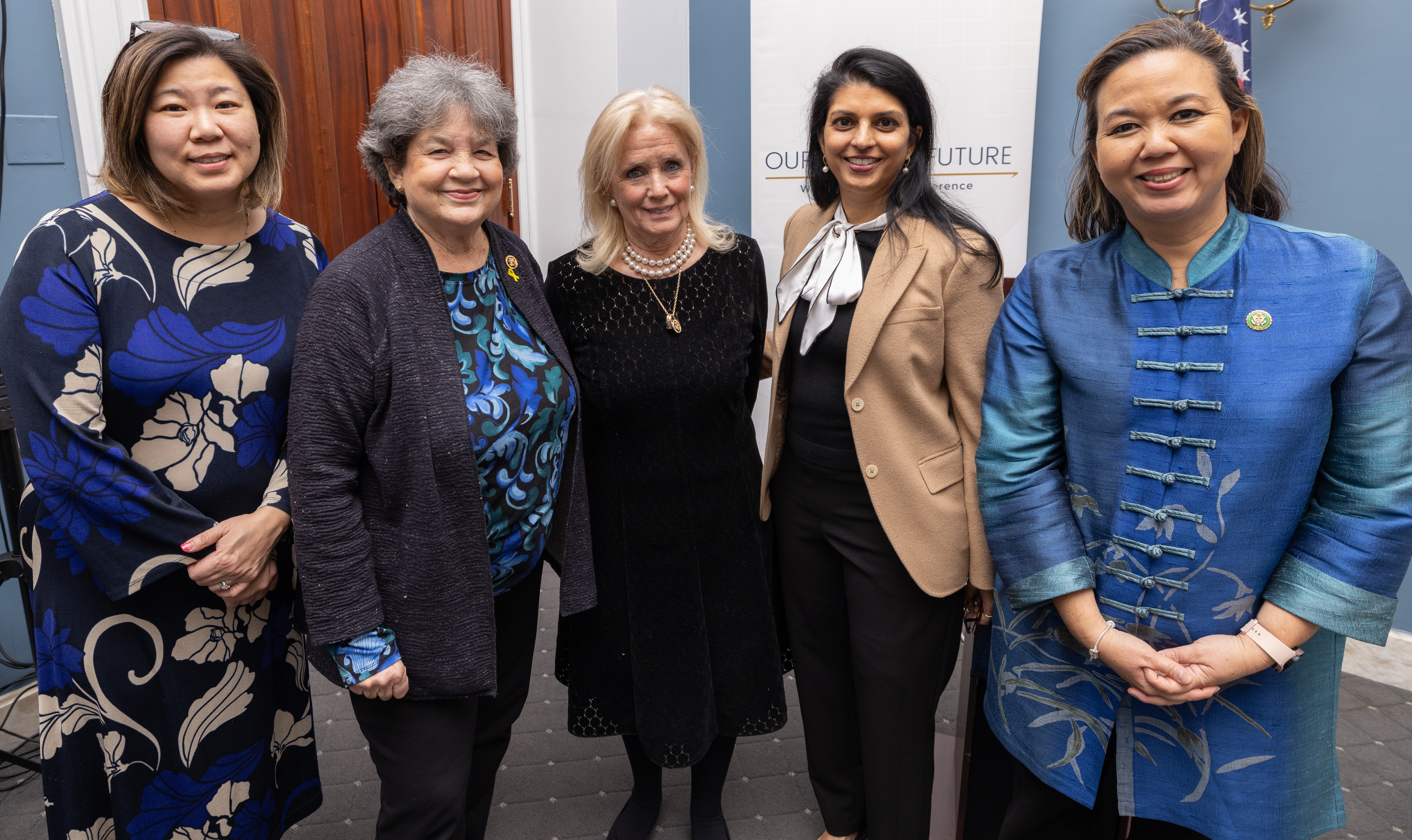
The panel was moderated by OSF Vice President Sahana Dharmapuri and featured the following speakers:
- Emily Prey, Director, Gender Policy Portfolio, New Lines Institute for Strategy and Policy
- Dr. Kyleanne Hunter, Senior Political Scientist, RAND
- Laura E. Adkins, Senior Director, Jewish Women International
- Naheed Farid, Global Advisor, International Republican Institute; Former House Representative, National Assembly of Afghanistan
- Wai Wai Nu, Founder and Executive Director, Women Peace Network in Myanmar
Additional remarks were provided by:
- U.S. Representative Lois Frankel (FL-22), Congressional Women, Peace and Security Caucus Co-Chair
- U.S. Representative Jen Kiggans (VA-02), Congressional Women, Peace and Security Caucus Co-Chair
- Ambassador Geeta Rao Gupta, Ambassador-at-Large for the Office of Global Women’s Issues, U.S. Department of State
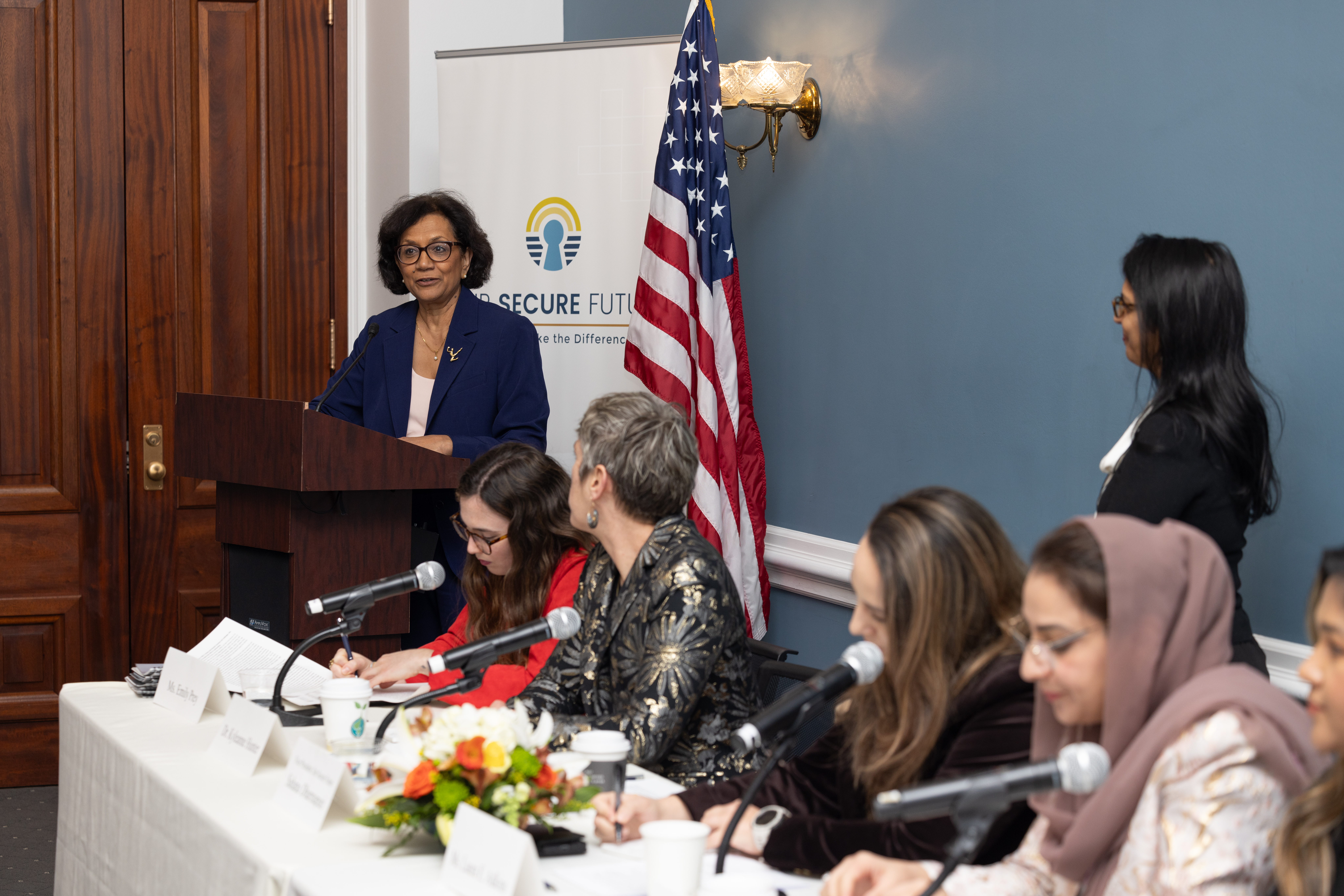
Conflict-related sexual violence is a global and pervasive problem, with women often viewed as victims rather than agents of change. Each speaker at the event has contributed significantly to addressing this issue in various conflict contexts. The panelists provided insight on the remarkable efforts women are making to respond to CRSV in conflict areas, including Ukraine, Myanmar, Afghanistan, and Israel. The event began with speakers highlighting the urgent need to tackle CRSV and amplify women's voices and agency in this critical arena, revealing a consistent theme of women's marginalization in conflict and security discussions. Drawing on their diverse experiences, they illustrated how sexual violence transcends direct conflict, acting as a tool to silence women's participation. Whether in the Middle East or Southeast Asia, women confront barriers to engagement and aspire to a society where they can freely assert their agency and be heard.
As the discussions unfolded, a plethora of policy recommendations emerged, encompassing a spectrum of strategies aimed at addressing CRSV and promoting gender equality. At the forefront was the call to tap into the expertise of local non-governmental organizations and civil society groups, coupled with a sense of urgency in extending immediate support to victims of sexual violence, particularly in regions like Ukraine where the impact on children is increasingly evident.
However, challenges and gaps persist in addressing CRSV, including insufficient funding to implement programs and policies, a lack of accountability to prosecute perpetrators, and weak or non-existent legal and policy frameworks to enforce protections. In consideration of these challenges, the question arises: how can key decision-makers support the efforts of women on the frontlines?
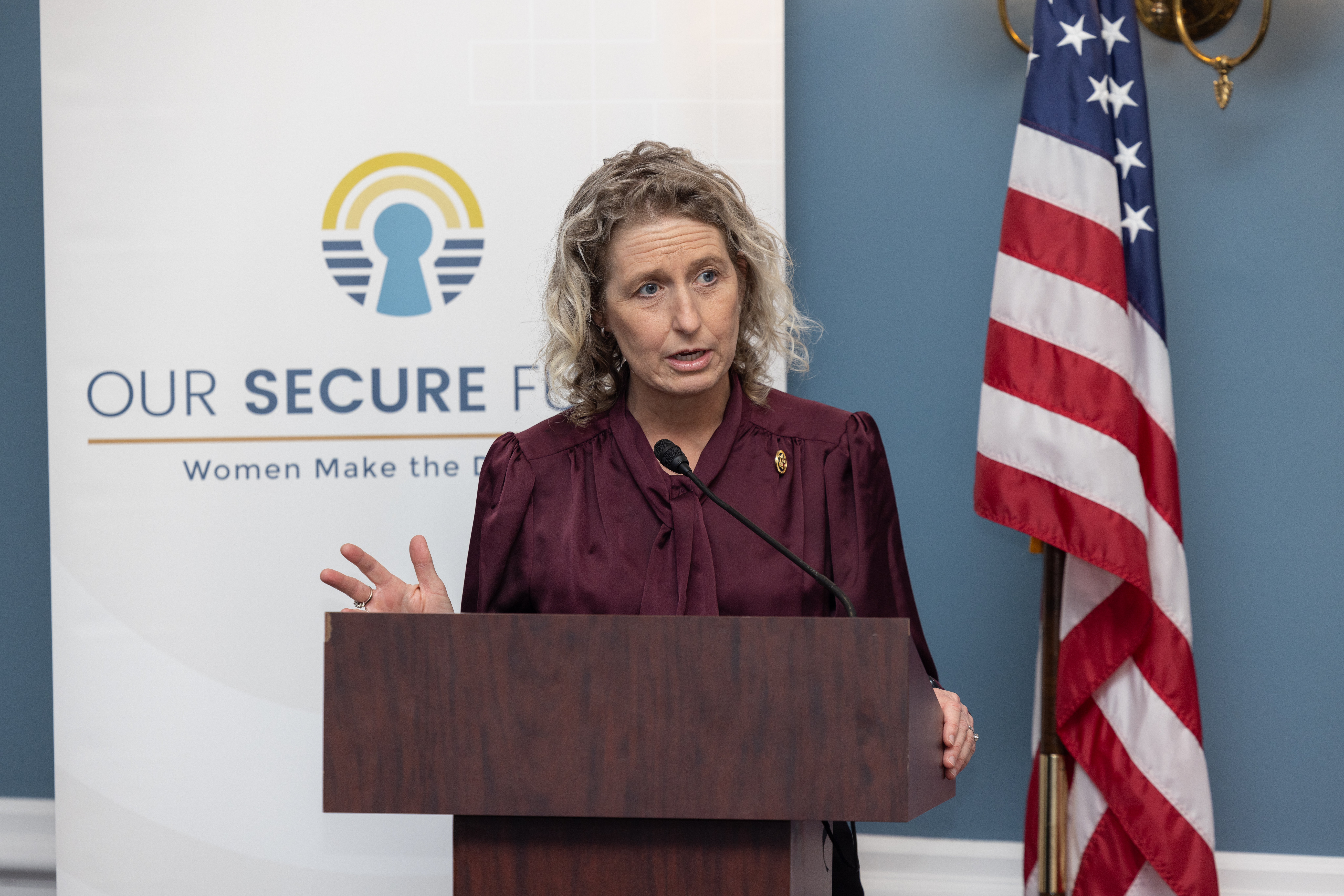
On the policy and governmental front, speakers advocated for the utilization of existing tools, such as the Presidential Memorandum on Promoting Accountability for Conflict-Related Sexual Violence, alongside the formalization of guidance on the gendered impacts of sanctions. Furthermore, there was a persistent push to leverage legislation like the Global Magnitsky Act to hold perpetrators, including entities like the Taliban, accountable. A call was also made for the acknowledgment of gender apartheid as a crime against humanity.
In the military and security realm, emphasis was placed on integrating gender advisor roles across all levels, operationalizing gender considerations with military partners, and ensuring systematic gender integration within the US military. Additionally, there was a recommendation to reassess success metrics, prioritizing safeguarding vulnerable and marginalized groups.
Speakers also tackled the role of media and disinformation, urging accountability from social media platforms for depicting sexual violence and highlighting the necessity of countering disinformation campaigns that perpetuate harmful narratives.
Lastly, domestic support and funding for victims of sexual violence were underscored as areas in dire need of increased resources and attention. Collectively, these recommendations embody a holistic approach for combatting the multifaceted challenges posed by CRSV, signaling a commitment to advance gender equality from grassroots initiatives to high-level policy actions.
